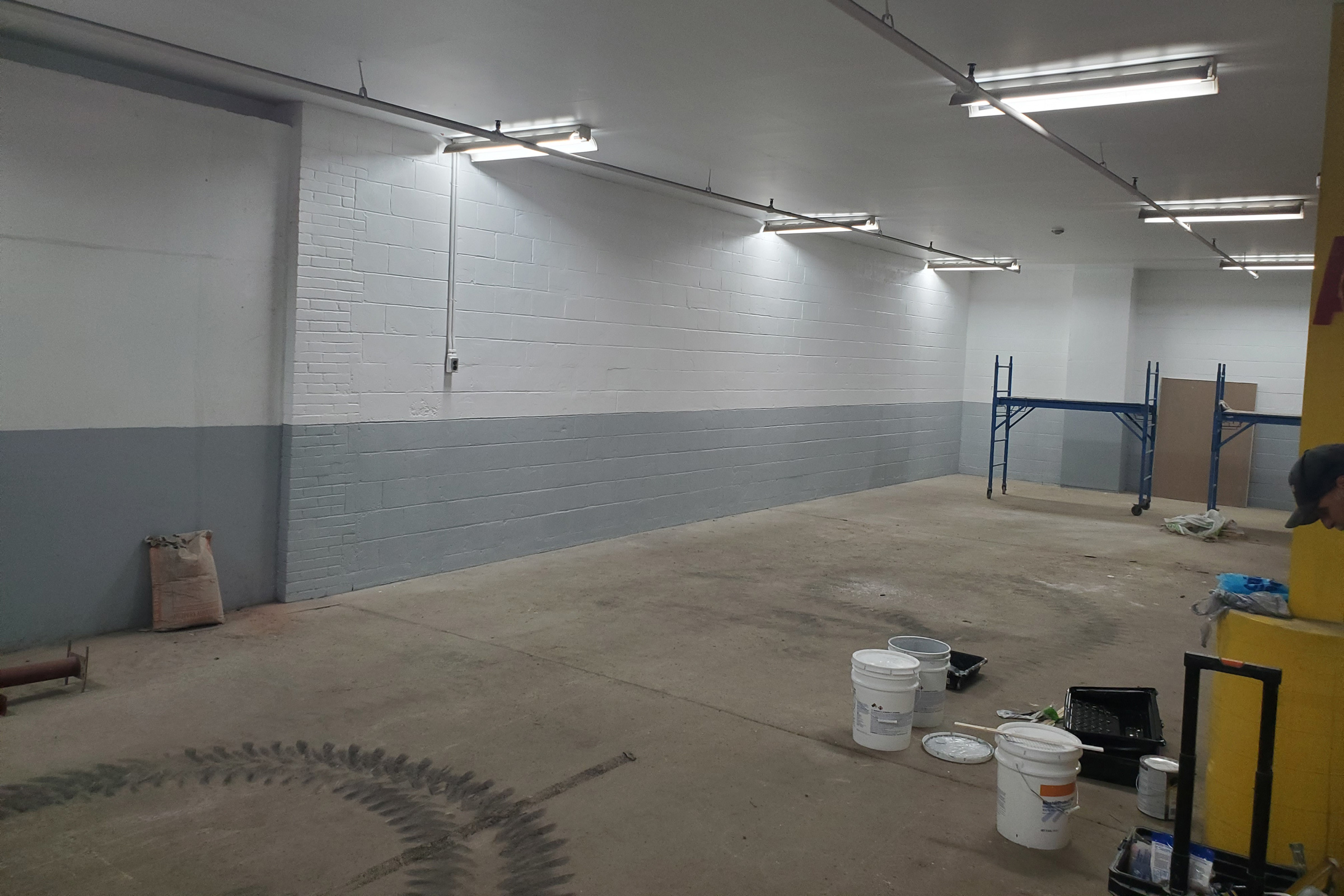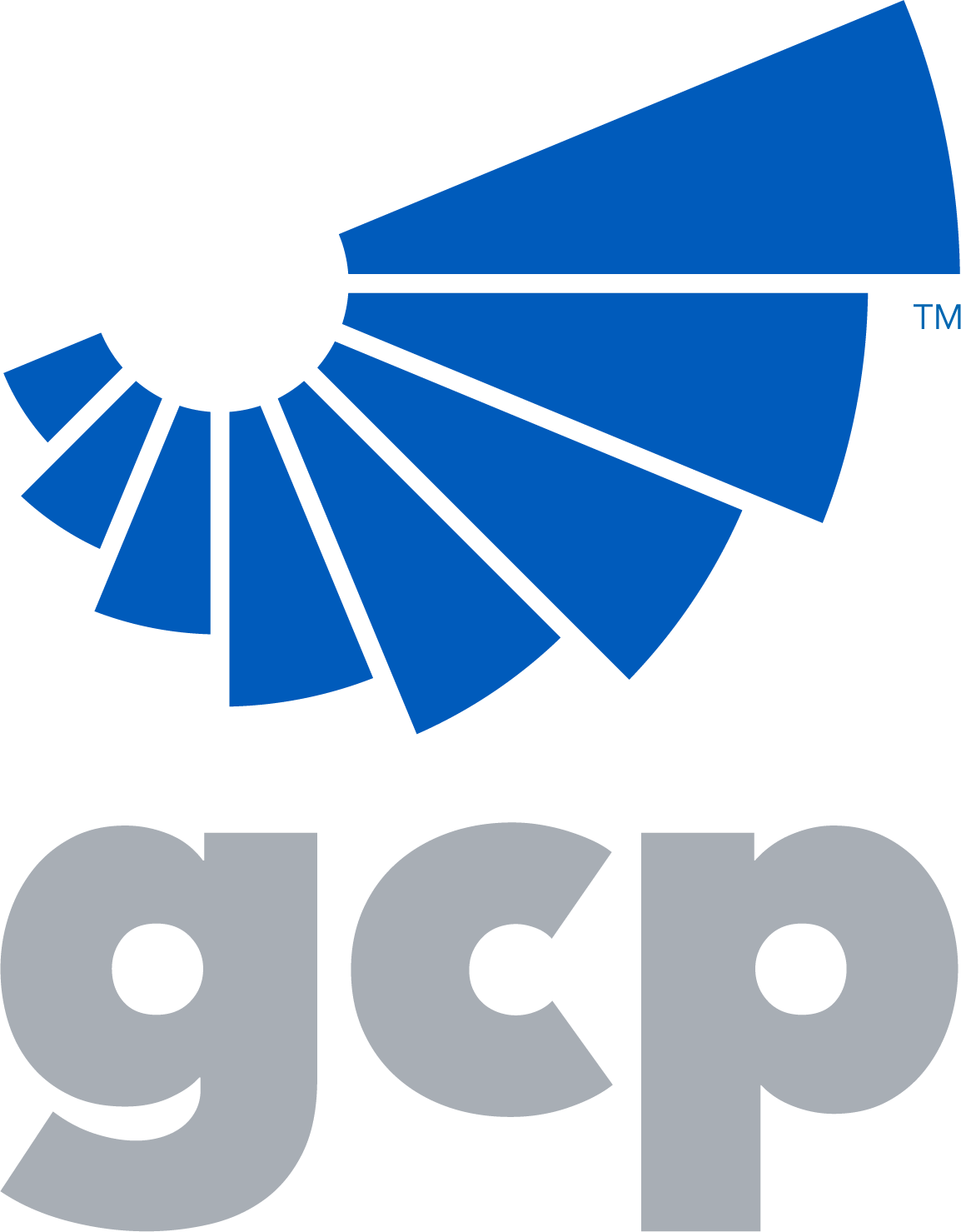Story at a glance:
- Proven DE NEEF waterproofing injection solution forms a curtain wall to repair water intrusion in an aging parking garage, eliminating costly excavation.
- By carefully evaluating the proper materials and injection techniques that are the best fit for your project, curtain grouting will provide a permanent waterproofing solution when water is flowing through a wall into the structure.
A federal facility in Pittsburgh was undergoing a major rehabilitation. Built in the 1960s, the structure includes a basement parking garage with foundation walls constructed of concrete masonry units (CMUs), also known as concrete blocks.
An urgent portion of the project was to mitigate water intrusion through the CMU foundation walls of the parking garage, as the existing waterproofing was failing. Water staining was coming through the masonry walls, including discoloration that indicated that the reinforcing steel was being affected by the water intrusion, causing concern for the structural integrity of the garage. An allowance was carried to strengthen the wall during construction although ultimately based on the engineer’s observations during the course of the project, structural strengthening was determined not to be necessary.
The Challenges
The rehabilitation project presented two critical challenges. The first was the urgency to repair the leaks coming through the parking garage CMU foundation walls to stop the deterioration and protect the structural integrity.
As a busy government facility safety is the number one priority for guests and employees utilizing the garage.
The second challenge was that the parking garage foundation walls are next to a road as well as a busy loading dock. Excavating the masonry walls to remove the existing below-grade waterproofing and replace it with a new system would require shutting down the road as well as the use of the loading dock for months. This type of disruption would have a major impact on the public and severely limit the function of the facility, which was unacceptable.
The Solution
To overcome these challenges curtain grouting was selected as the waterproofing technique to stop the water intrusion in the parking garage’s CMU foundation walls. Curtain grouting does not require excavation—saving time and money and eliminating road traffic disruption as well as the shutdown of the loading dock.
The curtain grouting technique utilizes a series of small holes drilled through the wall in a grid pattern, allowing material to be injected all the way through the CMUs to the positive side of the wall where it reacts. The injected material ties together to create an impermeable barrier that prevents the groundwater infiltrating the foundation wall. Following initial injection the wall should be monitored during a period of high soil saturation for leaks. Touch-up at small areas in the future may be required after the initial injection.
Curtain grouting allows you to seal multiple leaks simultaneously by creating an impenetrable waterproof barrier that stops water from coming into contact with the structure. Implementing a positive side repair is critical for protection of the structural integrity, as a negative side repair would allow groundwater to continue to saturate the wall and deteriorate the reinforcing steel.
The Process
Here we detail the process, beginning with soil testing.
Soil Testing
To select the chemical grout product for the curtain grouting, the project’s geotechnical engineer first conducted onsite soil tests to determine if polyurethane versus acrylate chemical grout was a better fit. It was found that acrylate was the fitting chemical grout for the soil.
Requirements for the acrylate chemical grout included:
● The grouting material needs to be a two component ultra-low viscosity hydrophilic acrylate.
● The reacted grout shall form a tough gel to stop water ingress.
● The grout needs to be nontoxic after curing.
● The cured acrylate grout must form a flexible gel barrier that is resistant to water migration.
● The grouting material must be certified by the manufacturer to contain no acrylamides, which is a safety and environmental concern.
● The grout must have an up-to-date approved certification by an accredited third party testing agency like UL or WQA, verifying that it complies with the Drinking Water System Components ANSI/NSF 61 standard.
Product Selection
The grouting product selected to meet all of these requirements was federally approved DE NEEF® Gelacryl Superflex Injection Solution. With proven performance on curtain grouting projects, it is a unique blend of methacrylic acrylate copolymers, combining the low viscosity of traditional acrylate resins with the elongation and adhesion that exceed most polyurethane resins.
The major advantages of DE NEEF are its ease of use as well as that it’s not diluted and can be applied quickly and reliably. The reaction time is highly adjustable, so the applicator can control material travel based on project conditions. GCP Specialty Building Materials, the manufacturer of DE NEEF, has done extensive testing on their products to ensure performance claims are backed up in the field and their products have multiple certification levels.
Execution
The design team considered multiple types of grout injection methods. It was narrowed down to both probe grouting and through-wall grouting. Ultimately the geotechnical engineer’s report guided the decision, and it was determined that the onsite soil is better suited for through-wall injection.
The through-wall injection method consists of drilling a series of holes through the wall of the structure and placing a layer of chemical grout, which fills voids and permeates soils to create an impermeable barrier along the exterior surface of the structure.
As the foundation walls were masonry, long injection ports were required to ensure the material was injected on the positive side of the wall instead of filling up the wall cavity. Injection holes were located at the mortar joints and drilled all the way through to the positive side of the wall.
The GCP team helped us understand all of our grout options.
With the grouting method selected, GCP Specialty Building Materials sent a field representative to the site prior to the start of the grouting work to observe and advise the work crews on the proper application procedures. GCP’s technical representative remained engaged with the applicator and maintained regular communication to answer questions and ensure the work was performed in accordance with their recommendations.
“The GCP team helped us understand all of our grout options,” says Tami Worker, Martin/Martin consulting engineer. “Together we meticulously evaluated various grout types to be tailored to the specific soil conditions onsite. Their collaboration proved instrumental in navigating the requirements outlined in the geotechnical report, truly establishing them as indispensable partners in our project.”
Structural considerations for lateral pressure behind the wall need to be studied with masonry basement walls. To manage that concern the team injected the DE NEEF grout in small stages so one area was cured before they moved to the next. DE NEEF also provided benefits, as it is not expansive and cures in a short period of time, so any fluid pressure behind the wall is localized and quickly dissipated.
The Results
The completed grout curtain wall is 3,700 square feet with two rows of ports also extending onto the slab-on-grade adjacent to the wall. This through-wall curtain grouting created an impermeable barrier on the outside of the walls between the structure and the soil.
The curtain grouting process took just over six weeks to complete, waterproofing the masonry walls efficiently without major disruptions. Had excavation been selected, months of disruptive construction would have required shutting down the neighboring road and loading dock.
DE NEEF Gelacryl Superflex Injection Solution has an expected service life exceeding most traditional waterproofing systems, protecting the structure for longer than it is likely to be in use. In addition, the consulting engineers for this project will conduct annual inspections to observe that it remains watertight.
Curtain grouting is a proven and reliable waterproofing technique. With no excavation required, it saves valuable time and money and is extremely effective for stopping active leaks. By carefully evaluating the proper materials and injection techniques that are the best fit for your project, curtain grouting will provide a permanent waterproofing solution when water is flowing through a wall into the structure. Minimizing disruption, time, and cost while increasing the long-term performance of the waterproofing places curtain grouting at the top of the list of waterproofing techniques.


